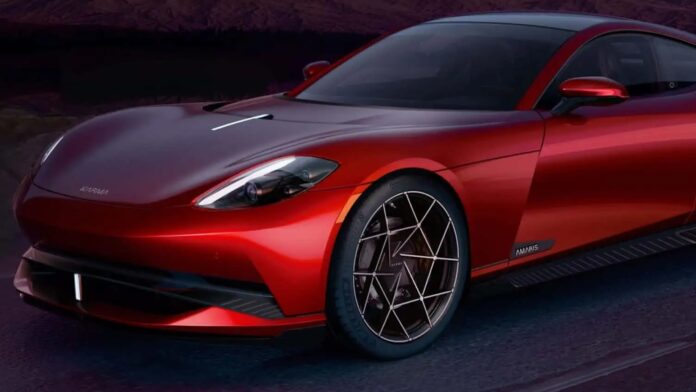Karma Automotive has officially unveiled the Amaris, a powerful extended-range electric vehicle (EREV) that’s set to redefine expectations for sustainable luxury vehicles.
According to Motor1, the vehicle’s hybrid powertrain comes with a gas generator and a four-cylinder range extender to recharge its battery. These features help address concerns about battery-related limitations and make the EV reach an estimated top speed of 165 miles per hour.
By integrating a range-extending engine, Karma Automotive aims to offer a balance between performance and practicality. Unlike traditional battery electric vehicles, the Amaris’s range extender allows it to travel longer distances without solely relying on charging stations.
This design helps address one of the most common concerns among consumers hesitant about EV adoption: range anxiety. It also offers a cleaner alternative to conventional gas-powered cars. The Amaris is expected to enter production in the fourth quarter of 2026.
“With our gorgeous Amaris 2-door coupe and soon-to-be-revealed Gyesera 4-door, we’re building a range of vehicles that will deliver exceptional EV torque and performance paired with worry-free cruising range, a combination that only EREV can deliver,” shared Marques McCammon, president of Karma Automotive, in a press release.
Beyond performance, EVs offer several advantages over gas-powered vehicles, including lower maintenance costs and reduced pollution.
A study from MIT found that gasoline-powered cars release an average of 350 grams of carbon pollution per mile driven over their lifetimes. Meanwhile, EVs, which operate on batteries charged through the average U.S. power grid, reduce that figure to around 200 grams per mile.
Moreover, a Reuters report found that with a Tesla Model 3, you only need to drive 13,500 miles to make up for the environmental costs associated with manufacturing gas-powered vehicles. Note that figures will vary depending on the EV’s power source, if it’s being recharged using power generated from coal or eco-friendly resources.
As more automakers explore electrification, concerns about battery production’s environmental impact still persist.
Mining minerals like lithium and cobalt for EV batteries does have a significant environmental impact. However, according to the U.S. Environmental Protection Agency, studies show that the overall carbon pollution from EVs remains significantly lower than that of gasoline-powered cars. The transition to greener energy sources aligns with growing consumer interest in eco-friendly practices.
Upway makes it easy to find discounts of up to 60% on premium e-bike brands
If you’re thinking of getting an electric vehicle, the benefits — like cost savings and lower environmental impact — can make it worth exploring.
Join our free newsletter for good news and useful tips, and don’t miss this cool list of easy ways to help yourself while helping the planet.


